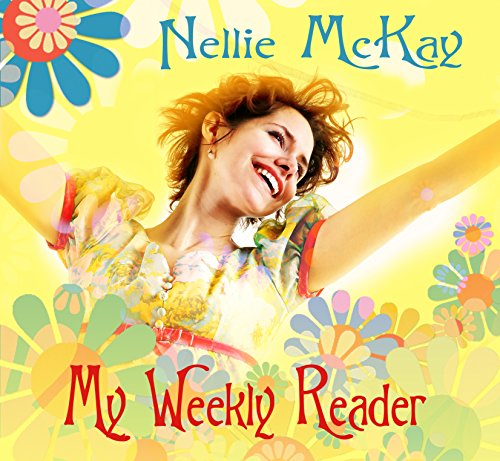
Nellie McKay
My Weekly Reader
Release Date: Mar 24, 2015
Genre(s): Pop, Jazz, Vocal, Pop/Rock, Adult Alternative Pop/Rock, Alternative/Indie Rock, Contemporary Singer/Songwriter, Alternative Pop/Rock, Vocal Pop, Vocal Jazz
Record label: 429 Records
Music Critic Score
How the Music Critic Score works
Buy My Weekly Reader from Amazon
Album Review: My Weekly Reader by Nellie McKay
Very Good, Based on 4 Critics
Based on rating 8/10
Nellie McKay covers 13 golden nuggets from the ‘60s on her latest release, My Weekly Reader. She brings together a weird group of songs that share little in common: well-respected pop rock by the Kinks and the Beatles, light confections by Paul Simon and Gerry and the Pacemakers, spirited psychedelica by Frank Zappa and the Mothers of Invention and the Steve Miller Band, freak folk by Richard and Mimi Farina and Crosby, Stills and Nash, the blues of Moby Grape and Country Joe McDonald and more. Discerning the reasons behind McKay’s choices is impossible to figure.
Based on rating 3/5
"I cannot believe I still have to protest this shit," spits Nellie McKay in "Murder in My Heart for the Judge," a Moby Grape jam smartly reanimated for the Ferguson era. A renegade songwriter with an ultraflexible Great American Songbook sensibility, McKay finds modern resonances everywhere in this inspired covers set: The fiscal crash clouds the Kinks' "Sunny Afternoon"; the schools crisis haunts Frank Zappa's "Hungry Freaks, Daddy." McKay mostly plays these straight, letting her musical smarts add the context. See the Crosby, Stills and Nash/Jefferson Airplane tune "Wooden Ships," colored with marimba and delivered with Sinatra-like precision — an apocalyptic sci-fi hash dream that still rings true.
Based on rating 6/10
Last time Nellie McKay took a stroll through the past, she doffed her hat at Doris Day, an obvious tribute for a singer as besotted with the stage as Ms. McKay. My Weekly Reader, the album that functions as the sequel to 2010's all-original Home Sweet Mobile Home, is a surprise as it shines a spotlight directly on some of the shadowy corners of the '60s.
Opinion: Average
Nellie McKay has built a career around being a singular, wackadoo talent run amok, something “My Weekly Reader” doesn’t really convey. It’s not that McKay’s incapable of rich poignancy — her whip-smart daffiness sets up her serious moments to hit all the harder — but the performances of the (mostly ’60s) covers that make up the album are largely uninspired; McKay seems unwilling to approach them sideways or dig in deep. She barely raises her Blossom-Dearie-with-daggers voice above a sleepwalk, and the production is flat and dull.
'My Weekly Reader'
is available now

